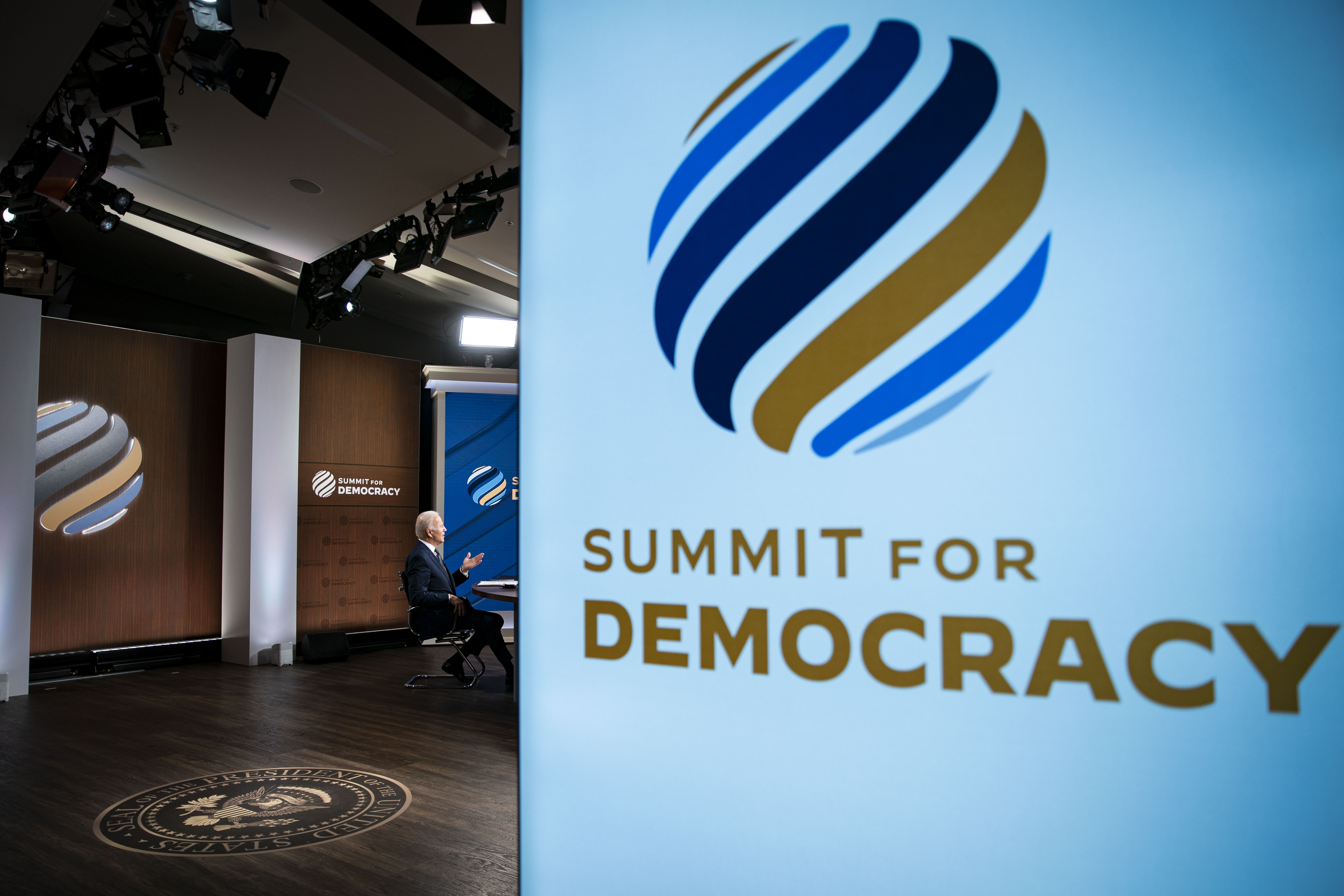US rolls out tech export controls to curb repression
Sign up now: Get ST's newsletters delivered to your inbox

The export controls were announced at the US-convened Summit for Democracy, on Dec 10, 2021.
PHOTO: BLOOMBERG
WASHINGTON - The United States and several other countries on Friday (Dec 10) rolled out an export control programme to curb the spread of technologies which they said could be used by governments for repression.
Washington also placed SenseTime Group, a Chinese facial recognition software company accused of enabling the repression of Uighurs in Xinjiang, on a blacklist that will bar Americans from investing in it.
Along with Australia, Denmark and Norway, the US will develop a voluntary written code of conduct over the coming year "to prevent technologies from falling into hands that would misuse them", said US Agency for International Development administrator Samantha Power.
Canada, France, the Netherlands and the United Kingdom also support the export controls, which were announced at the US-convened Summit for Democracy.
China, which was not invited to the virtual summit and has been heavily criticised for its human rights record, accused the US of advancing its hegemony in the name of democracy by stoking division and confrontation.
Chinese Foreign Ministry spokesman Wang Wenbin told a daily news briefing in Beijing on Friday that the US was trying to divide the world into "democratic" and "undemocratic" camps by its own standard.
The US, Canada and Denmark are also launching a Surveillance Principles Initiative to lay out how governments should use surveillance technology in a manner consistent with the Universal Declaration of Human Rights and the rule of law, said Ms Power. This will lay out guidelines for, among other things, how to adequately protect user data, she added.
"While it's true that digital technology has enabled immense scientific and economic progress... it has also given governments the ability to surveil, to censor and to repress their people as never before," she said.
Cyber intrusion, surveillance, and other dual-use technologies have been misused to stifle dissent, harass human rights defenders, intimidate minority communities, discourage whistle-blowers and target political opponents, the White House said in a fact sheet.
"In the tech world, 'Move fast and break things' has been the prevailing mantra. A lot has been broken, and now it is incumbent on all of us to move faster than we ever have before to repair our democracies," said Ms Power.
Announcing the investment restrictions on SenseTime, the Treasury Department said the company owned a subsidiary which had developed facial recognition programs that can determine a target's ethnicity, with a focus on identifying ethnic Uighurs.
Beijing has defended its high-tech surveillance as necessary to counter extremism, and has accused Washington of misusing national security justifications to target Chinese companies.
Last month, the US banned several companies behind intrusion software from doing business with American firms. These included Israeli firms NSO Group and Candiru, which Ms Power said sold spyware to repressive regimes.
The Commerce Department has also singled out Russia's Positive Technologies and Singapore's Computer Security Initiative Consultancy, both of which developed cyber intrusion tools.
The export control programme is part of the Presidential Initiative for Democratic Renewal, which is expected to cost US$420 million (S$573 million). The initiative includes programmes to support free and independent media, fight corruption and support democratic reformers, as well as defend free and fair election processes.
During the summit, the US also imposed human rights-related sanctions on China, Myanmar and North Korea, as well as on Central American, African and European individuals and entities accused of corruption.


